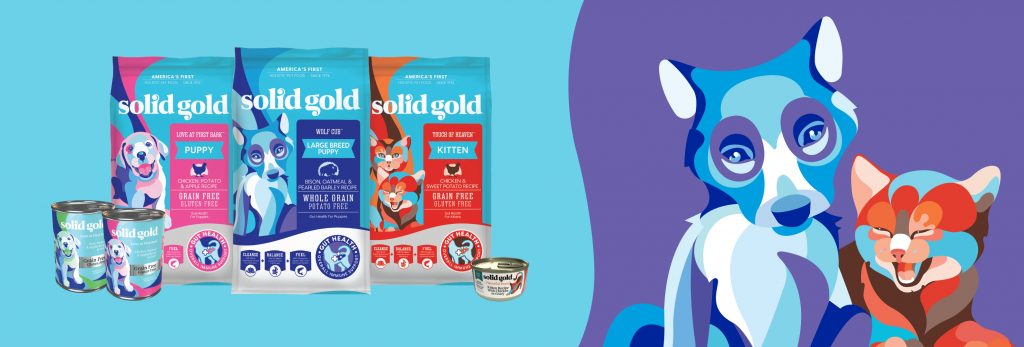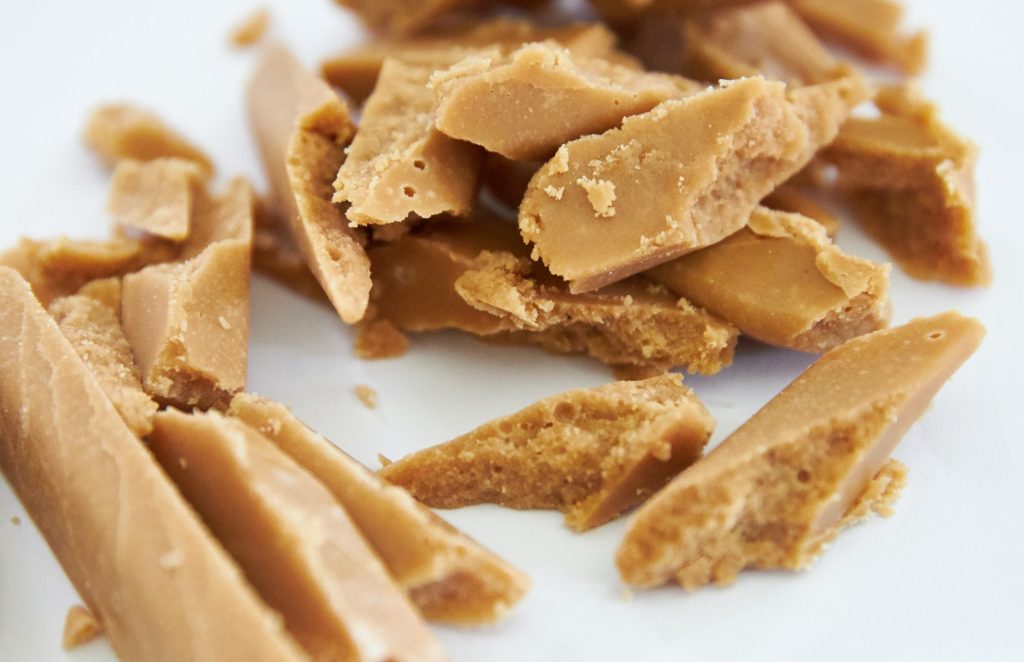Did you know there’s more to small breed kibble than its size?
You might think that your small-breed dog needs a small-sized kibble because it fits better into their tiny mouth, but there’s a more important reason to feed your dog a kibble that’s tailored to their body size.
Smaller breeds need a kibble that’s packed full of nutrition and is easy to digest for optimal gut health. A few large-sized kibbles can fill your small dog’s stomach without providing enough fat and protein to properly fuel a faster metabolism. A smaller, dense kibble that can be quickly and efficiently digested gives your pet the best-balanced nutrition to lead an active life.
Similarly, loading your small dog up with low-quality kibble or human food can quickly fill the stomach without providing adequate nutrition. Many small dogs suffer from digestive issues like gas, vomiting or loose stool not because they’re genetically predisposed to these ailments, but because they’re being fed the wrong diet.

What should you look for in a small breed kibble?
A high-quality kibble designed specifically for the needs of small breeds is key to your dog’s health, but finding the right food can be challenging. Here’s what you need to look for in a dry kibble to maintain top digestive health.
Omega Fatty Acids and Healthy Fats
Omega fatty acids keep your dog’s skin and coat healthy. They also boost the immune system, improve heart health and aid brain function. They help ensure proper development of the retina and visual cortex for good eyesight. Omega-3 fatty acids are also key to helping repair gut issues and maintaining good gut health.
But not all omega-3 oils are equal. Look for high-quality fish oils, including salmon oil. These are high in eicosapentaenoic acid (EHA) and docosahexaenoic acid (DHA), the components of omega fatty acids that provide the most health benefits.
The right type and amount of fat helps provide sustained energy for your small breed’s high activity level. Natural chicken fat is a rich source of healthy omega fatty acids. Plus, pure chicken fat lacks the protein particles that can cause poultry protein intolerances in some dogs, so it’s safe for nearly every pup to consume.
Amino Acids
Amino acids are the building blocks of protein and are vital for building strong, healthy muscles and supporting a proper metabolism. High-quality meats such as chicken, turkey, lamb, beef and bison provide your pets with these vital amino acids. Eggs are considered “nature’s perfect protein” and provide an ideal amino acid ratio. Eggs are extremely bioavailable, meaning they are incredibly easy to digest and your dog will be able to process and utilize nearly all the protein provided by eggs.
Probiotics
A healthy gut drives overall health, and probiotics can help aid digestion and keep the right balance of beneficial bacteria inside the digestive tract. Probiotics in dog foods must be carefully managed to ensure a high level of living bacteria. Look for food where the probiotics are added after processing so that they are not destroyed during cooking and can make it into the dog’s gut, which is where they will be most effective.
Fiber
A good fiber source is also essential for proper digestion and elimination. Sweet potato tastes great to almost all dogs — even picky eaters — and helps support digestive health. Pumpkin’s fiber content can assist with balancing a sensitive digestive tract and improves overall bowel health.
Superfoods
Some foods are packed full of nutrition and the perfect addition to small dog kibble. Your ideal choice will be based on your individual pet’s needs. Cranberry can help with urinary tract health and provide essential antioxidants. Apple is a perfect source of key phytonutrients.
The Right Nutrition for Your Pet’s Age and Activity Level
Make sure that the food you choose contains the right amount of protein and fat levels for your dog’s size and age. Small breed dogs may need a higher percentage of protein and fat in their diet to support their increased metabolism and activity levels. Look for around 30 percent protein and 16 to 20 percent fat in dry kibble.
An all life stage food meets the needs of puppies (dogs under 1 year of age) as well as adults and seniors. Dogs over age 7 are generally considered to be seniors, but be cautious: a 7-year-old Great Dane is definitely a senior, but a 7-year-old Yorkshire Terrier is barely halfway there. Senior classification depends on several factors besides age, including breed, size, and activity level.
How does Mighty Mini fit into your small dog’s ideal diet?
Mighty Mini by Solid Gold is a tiny kibble packed with big nutrition, created just for toy and small breed dogs. With nutrient-packed ingredients like carrots, pumpkin, and apple to provide antioxidants, fiber and phytonutrients to clean the gut and proper levels of omega-3 and -6 fatty acids to fuel the growth of certain beneficial bacteria, the ingredients work together to support overall gut health. As well, Solid Gold utilizes a proprietary encapsulation process that protects the probiotics from the elements until they are consumed, helping to balance your pet’s digestive system.

With just the right levels of protein and fat, Mighty Mini is one of the smallest kibbles on the market — and one of the best nutritionally for your canine family member. It’s packed full of natural, lean proteins that are easily digestible along with Superfoods that add important antioxidants and fiber for ongoing gut health.
Mighty Mini is formulated to support the needs of small breed dogs throughout life. Solid Gold foods are designed to provide proper nutrition for all parts of the body, including the brain, muscles, digestive system, metabolism and coat/skin. To nourish your toy or small breed inside and out, try Solid Gold’s Mighty Mini , available in a variety of flavors as well as dry and wet varieties.
.









